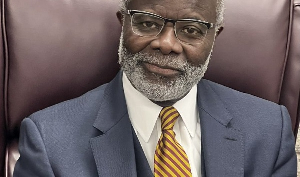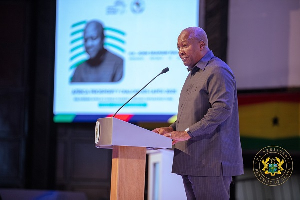Akropong (E/R), Nov. 29, GNA - World Education, Ghana, a nongovernmental organisation (NGO), and the United States Agency for International Development (USAID) on Tuesday donated audiovisual equipment worth 47 million cedis to 15 teacher-training colleges in Ghana at a ceremony in Akropong-Akwapim in the Eastern Region. The donation, which comprised 15 television sets and 15 videocassette recorders, is to facilitate the screening of films to raise HIV/AIDS awareness among teacher trainees. The donation was part of USAID's support to 38 teacher-training colleges, including Akrokeri, Atebubu, Enchi, Gbewaa, Peki, Tumu and Abetifi Teacher Training Colleges.
Ms Sharon Cromer, Mission Director of USAID, said the entire package, worth more than one million dollars, would be used to develop an HIV/AIDS curriculum and education materials for lessons on HIV/AIDS in the Colleges.
She said the US government through USAID had provided assistance to Ghana on democracy, governance and economic growth, with objectives closely aligned with the Ghana Poverty Reduction Strategy (GPRS). "Therefore, we seek to help Ghana to broaden and diversify its economy, create wealth, generate employment and reduce poverty with HIV/AIDS being a cross-cutting theme in our strategy," she said. Ms Cromer said the pandemic was a serious problem in countries in Sub- Saharan Africa and the challenge was to reduce infections by focusing on implementing vigorous prevention efforts and effective social outreach activities.
She noted that the pandemic had spread slowly but steadily in Ghana since surveillance from the Ministry of Health indicated a rise in the prevalence rate from 2.4 per cent in 1994 to 3.6 per cent and down to 3.1 per cent this year.
Ms Cromer said USAID had also supported the Military, Police, Prisons and adopted principles outlined in the GPRS to focus on prevention and capacity building of Ghanaian institutions. Mr John Yanulis, Country Director for World Education, said the awareness on HIV/AIDS was high in the Ghana but only 38 per cent could correctly identify three main ways of preventing HIV/AIDS and four misconceptions around the disease.
He said a recent study conducted by World Education indicated that only 40 per cent of students, 42 per cent of teacher trainees and 47 per cent teachers could be said to have comprehensive knowledge on the disease.
Ghana News Agency in an interview, Mr Yanulis said people were becoming tired of the HIV/AIDS pandemic hence the need to intensify education to reach not only the youth but other equally important groups.
He said USAID and World Education with support from the Teacher Training Division of the Ghana Education Service had developed the "Window of Hope" Curriculum for HIV/AIDS prevention with the hope to provide teacher trainees with the requisite knowledge on the pandemic. Mr Simon Tsadidey, General Secretary of the Principals' Conference, said teachers, who were agents of change had for long been neglected in the fight against HIV/AIDS. He appealed to donors and the Ghana AIDS Commission to fund Teacher Training Colleges in order to play their expected role in educating communities on HIV/AIDS.
General News of Tuesday, 29 November 2005
Source: GNA
















